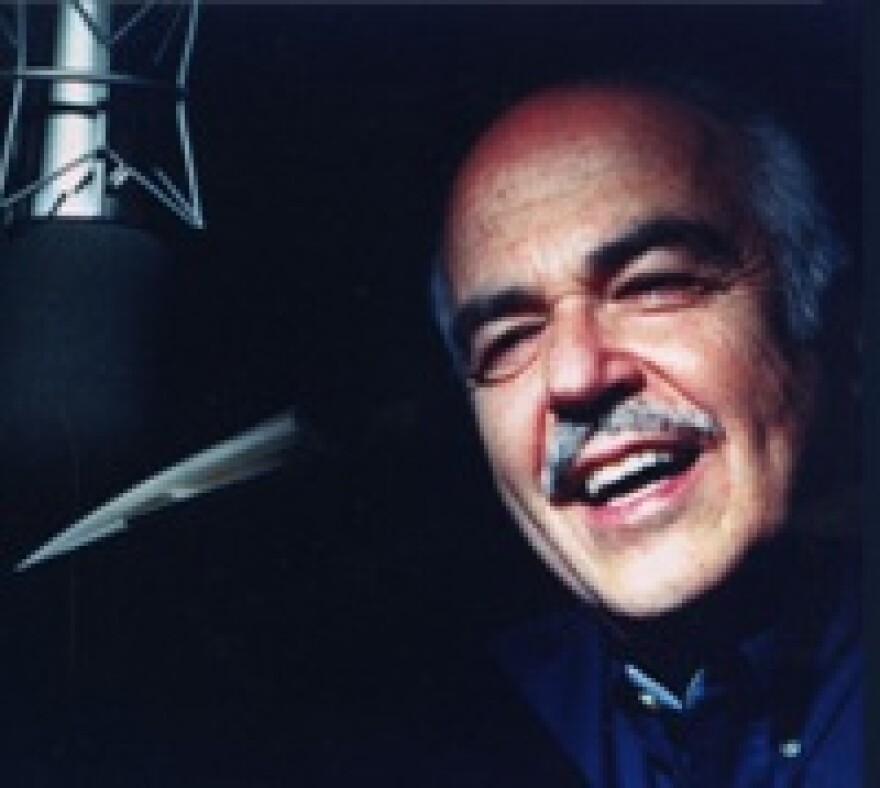George Guidall has narrated more than 900 audio books, from old classics to the latest fiction. "I've often described myself as a literary hermit crab," he says. "I scuttle around the currents of literature and find a home in someone else's imagined truth."By Lynn Neary/NPR
http://stream.publicbroadcasting.net/production/mp3/national/local-national-935210.mp3
Growing up, George Guidall wasn't much of a reader. "I hear my mother keep telling me, even now, 'George you never pick up a book. You just don't read,'" he says.
Well, times have changed. In the last 20 years, Guidall has narrated more than 900 audio books ? everything from classics like Don Quixote and Swann's Way to novels by Philip Roth and Jonathan Franzen.
An actor by trade, today Guidall never stops reading ? on the train, in the doctor's office ? but most of all, in the studio. In an average studio session, he reads about 50 to 70 pages. Over time, Guidall says, a relationship develops not only between the listener and narrator, but also between the narrator and the author.
"I've often described myself as a literary hermit crab," Guidall says. (Read his essay on the topic here.) "I scuttle around the currents of literature and find a home in someone else's imagined truth. ... There is an amazing connection with the author. His voice becomes my voice."
One of Guidall's biggest fans is also one of his favorite authors. Ever since Guidall narrated Wally Lamb's novel I Know This Much Is True, the two have developed a close working relationship. Lamb liked Guidall's narration so much that he requested him for his next novel, The Hour I First Believed. A narrator, Lamb says, can make a big difference in the way a reader reacts to an audio book.
"Ultimately I think it's a translation," Lamb explains. "Every once in a while I get a package at home and it's the foreign translations of my books. You just take a leap of faith, saying 'We hope it's a faithful translation.' But when I listen to George translate or interpret my work, it's just accurate. It's how I think of the characters speaking."
Finding a rhythm that will pull listeners in is one of the tricks of narration, says Guidall. The other challenge is creating and sustaining the voices of many characters. Simply finding the right voice can be tricky; Guidall remembers searching hard for the voice of Quasimodo in The Hunchback of Notre Dame.
"We were doing all kinds of things," Guidall recalls. "Nothing was working, so I asked a couple of people ... to turn away and not look at me in the booth. I stuck my finger in my mouth and said, 'Oh, all that I ever loved.' And they turned around and said. 'That sounded great. What was that?'"
Guidall says he thinks of audio books as a new art form, though he acknowledges the form has its critics. Lamb says he doesn't really care whether his fans read his books in printed form or listen to them. He sees audio books as part of a long tradition.
"When you think about history," Lamb says, "Mr. Gutenberg came along and suddenly we had the book. But long before that, we had the oral traditions, we had storytellers sitting down and weaving a plot and presenting characters."
That listening experience hasn't really changed much for eons, Guidall says. Think back to the cavemen who sat around the fire, listening to tales of the latest hunt.
"Now the cave is the SUV," Guidall says. "[People are] listening to the books while the 18-wheelers go by. The parallel is still there. There is still the safety and the tribal nature of people listening to something being told to them."
Guidall has no illusions about his own role. It is the writer who is the real storyteller. He is an actor; his role is to bring the words alive. For him, the biggest thrill is reading words that give him pleasure both on the page and in the studio. Because he knows those are the stories that will be the best experience for both readers and listeners.

